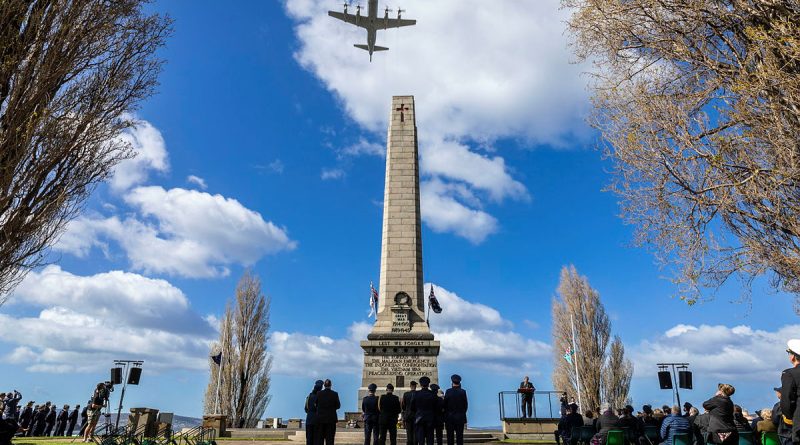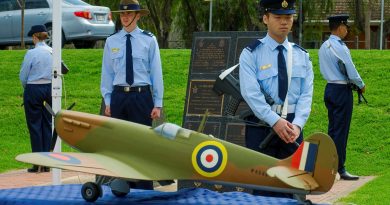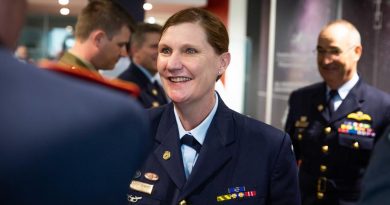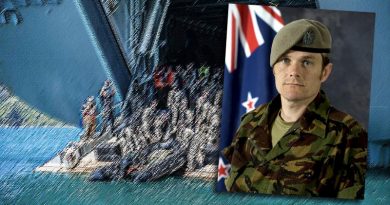Air Force pauses to remember historic battle

The roar of engines overhead from a 10 Squadron AP-3C (EW) Orion heralded the start of a sombre wreath-laying ceremony during Battle of Britain commemorations in Hobart from September 16-17.
CAPTION: A RAAF AP-3C Orion aircraft from 10 Squadron conducts a flypast during the National Commemoration of the 83rd Anniversary of the Battle of Britain at Hobart Cenotaph, Tasmania. Story by Flight Lieutenant Nicholas O’Connor. Photo by Leading Aircraftman Chris Tsakisiris.
Dignitaries representing former allies and foes joined their Australian Air Force counterparts to pay respect to those involved in the battle, especially the 35 Australians who flew combat operations during the campaign – 10 of whom were killed in action.
The Battle of Britain took place from July 10 to October 31, 1940 and is regarded as the first military campaign fought entirely by air forces.
The commemorative events in Hobart were organised by the RAAF Association Tasmania and included a remembrance service at St David’s Cathedral, a cenotaph service and wreath-laying ceremony, and aerial displays by a 10 Squadron AP-3C (EW) Orion and the Air Force Roulettes.
The weekend also provided the opportunity for the Air Force Cadets (Tasmania Division) to meet the Roulettes at Hobart Airport.
National Air Force Association President Group Captain (retd) Carl Schiller paid respect to those who made the ultimate sacrifice during the battle.
“Between July and the end of October 1940, over 500 allied aircrew passed, and 10 of them were Australians” Group Captain Schiller said.
“It’s important that on days such as today that we should know about them and the sacrifices they made.”
Association Director Air Commodore (retd) Doug Chipman highlighted the importance of the battle during his address at the wreath-laying ceremony.
“The Battle of Britain victory was the turning point of World War 2 and underwrites the way of life we enjoy today.” Air Commodore Chipman said.
“The battle established the significance of air power, which has become so pervasive in modern warfare.
“So it’s appropriate for us to remember those who lost their lives or were injured during the Battle, their families that were left behind, and the legacy they have bequeathed to us.”
.
.

.
.





